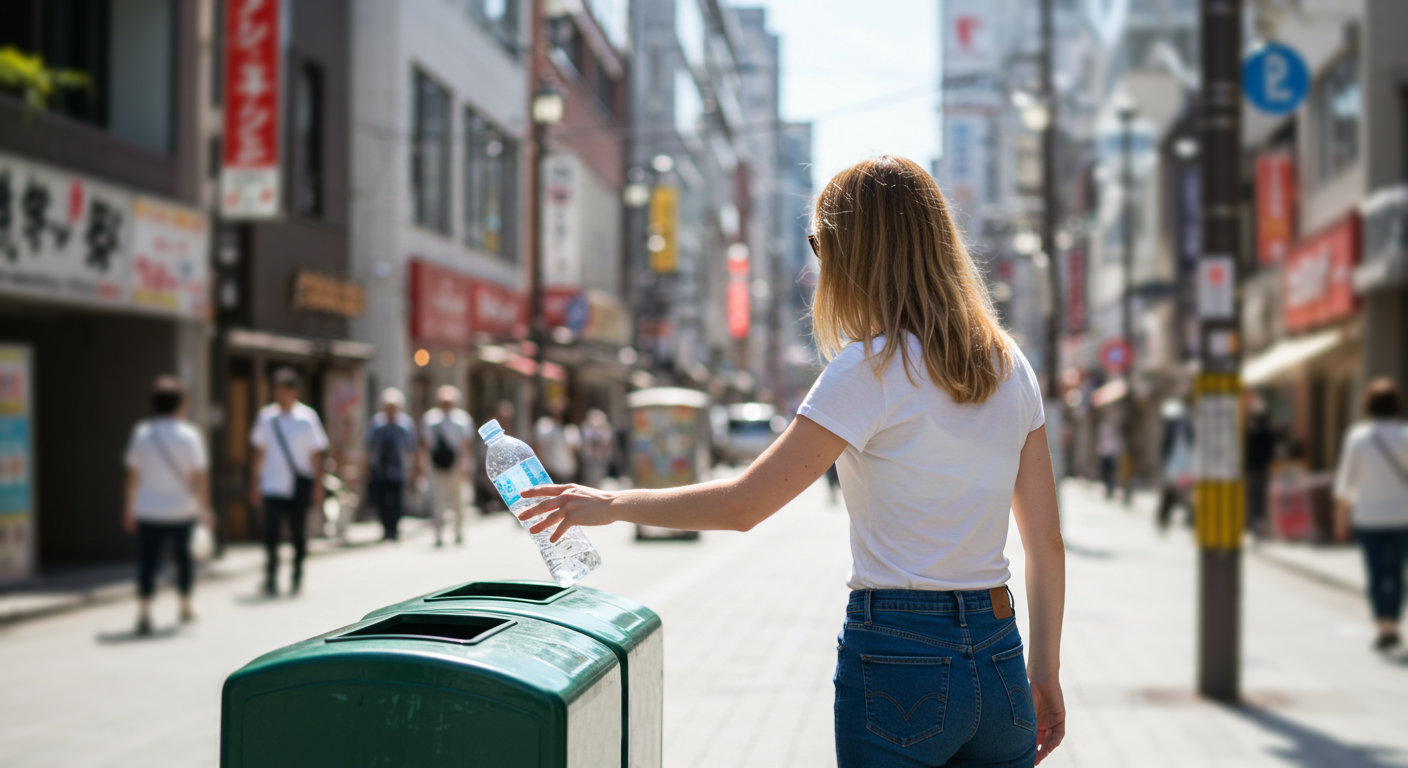

Why Waste Sorting Matters in Japan: What Travelers Should Know
In Japan, waste separation is essential for protecting the environment and keeping public spaces clean. Local governments typically require residents to sort trash into burnable, non-burnable, and recyclable categories. Improperly sorted garbage may not be collected and can cause friction with neighbors. Even short-term visitors are expected to follow these rules, so it’s important to be mindful.
How to Sort Trash in Japan: Burnable, Non-Burnable, and Recyclables
Common travel-related waste includes plastic bottles, bento containers, snack wrappers, tissues, and disposable masks. These must be sorted into categories such as burnable, recyclable, and plastic waste. Items marked with the “プラ” (plastic) symbol are usually recyclable. Always check local signage and follow the specific sorting rules in your area.
Japan has fewer public trash bins than many other countries due to anti-terrorism measures, but you can usually find them at convenience stores, train stations, and shopping centers. Dispose of trash correctly and respectfully.
How to Dispose of Trash at Hotels and Ryokan: Be Kind to Staff
In hotels and ryokan, rooms often have separate bins for burnable and non-burnable trash. Recyclables like bottles and cans are typically disposed of in designated bins in hallways or lobbies. To help cleaning staff, pour out liquids before throwing away containers and seal food scraps in bags. Practicing good waste manners ensures a more pleasant stay for everyone.
What Is Japan’s “Take-Home” Trash Culture? Why Littering Is Unacceptable
One reason trash bins are scarce in public places is Japan’s “take your trash home” culture. Many Japanese people carry small bags for storing waste until they get home. While this may seem inconvenient, littering is seen as rude and can result in fines. In sacred sites and tourist areas, leaving trash behind greatly harms the local atmosphere. Travelers should respect this custom and seek out proper disposal spots or take trash with them.
Using Trash Bins at Convenience Stores and Tourist Spots
Convenience stores and tourist areas usually have separated trash bins labeled for burnables, cans, and PET bottles. Labels often include English and illustrations. Don’t throw away household trash in convenience store bins—only use them for small, on-the-go items. Always empty drink containers and, in some areas, remove labels before disposal. Check signs and dispose of waste properly.
No Trash Bins in Parks or Stations? Tips for Handling Your Waste
Public spaces like parks and stations often lack trash bins in Japan. This is part of efforts to keep cities clean. Japanese people typically carry their garbage home, and travelers should do the same. Keep snack wrappers and ticket stubs in your bag until you find an appropriate disposal spot. Leaving trash in public places is bad manners and can damage the area’s reputation. Embrace the take-home culture for a more respectful visit.
Garbage Etiquette for Longer Stays: Schedules, Bags, and Common Pitfalls
If you’re staying long-term or using a vacation rental, it’s crucial to follow local trash rules. Each type of waste has designated collection days, and trash must be placed at the correct spot by 8 AM. Failing to comply may result in uncollected garbage and even complaints from neighbors. Also note that designated trash bags may differ by region.
Final Tips: Follow the Rules and Enjoy a Smooth Stay in Japan
Sorting trash in Japan isn’t just about the environment—it’s also a way to show respect to the community. While it may seem complex at first, you’ll get used to it quickly. Practicing proper waste disposal can earn the trust of locals and make your travel experience more enjoyable. Small efforts lead to a big impact on comfort and peace of mind.



